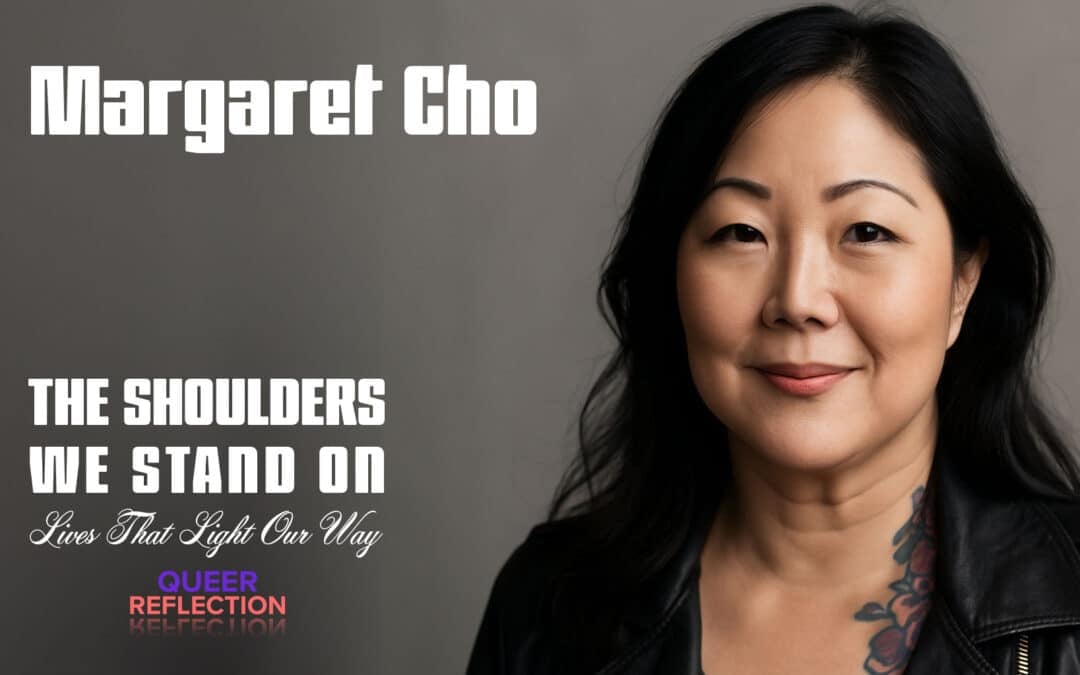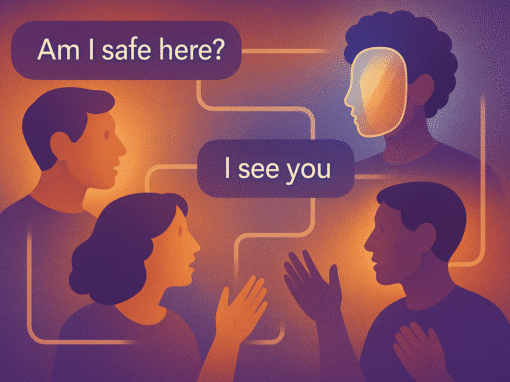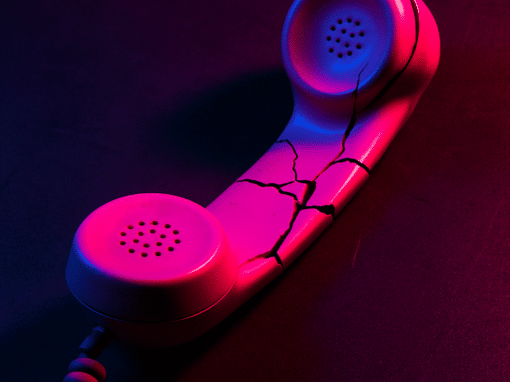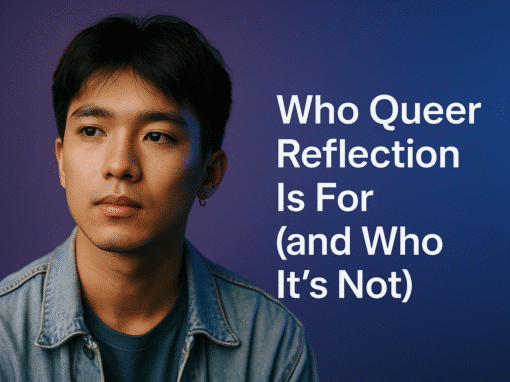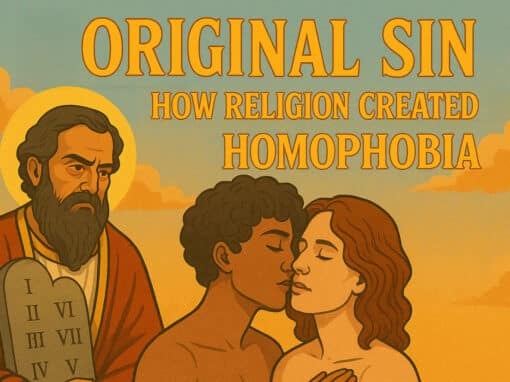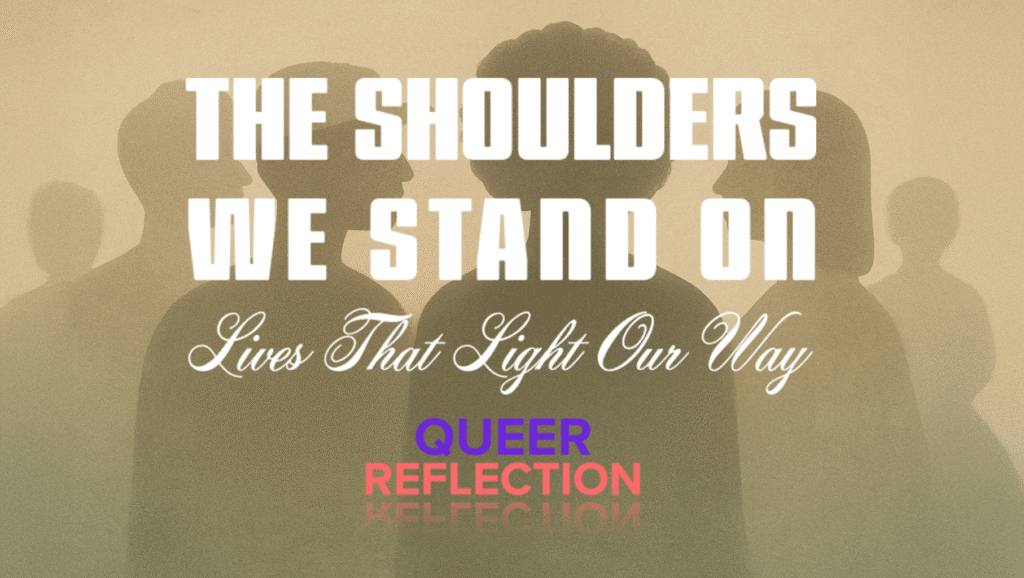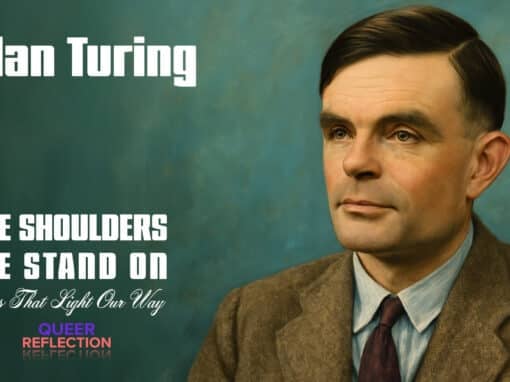Her comedy was a lifeline. Her courage was a blueprint.
When I moved to San Francisco with my boyfriend in the 1990s, I didn’t realize yet how much the city — and the people in it — would shape me.
And somewhere between all the uncertainty and all the magic, Margaret Cho showed up like a magical bolt of lightning.
She wasn’t just funny. She was fierce. Loud. Queer. Angry. Hilarious. Unapologetically Asian American and queer in a world that told people like us to shrink ourselves.
“I’m not going to die because I failed as someone else. I’m going to succeed as myself,” she declared, and those words hit like a revelation. Here was someone who didn’t ask for permission. She didn’t wait for the world to be ready. She just took the stage and said everything we were feeling — about racism, about homophobia, about being too much for some people and not enough for others. Yet she was never any less than her authentic self.
“At that time, when you were racist toward Asians, it was not read as racism,” she reflected years later about her early comedy days. “There was a long period of time where we sort of had to think: Are we people of color?” This uncertainty, this erasure — Margaret turned it into fuel for her fire.
We saw her live on tour more times than I can count — those nights felt electric, like we were part of something bigger than a comedy show. In those darkened theaters, she would tell us truths that cut through decades of silence. “It’s not possible to cope anymore in silence. That’s not OK anymore, it’s not going to be absorbed and we can’t be silent about it,” she said about racism against Asian Americans, but it applied to everything she stood for.
We even spotted her in the Castro once or twice, real and human and somehow even more iconic for it. I still remember just barely missing her book signing, standing outside A Different Light Bookstore with a bittersweet kind of awe.
Her comedy wasn’t just entertainment — it was education, revolution, and healing all at once. “To me, it’s a pointed way to talk about racism, and the spectrum of it without making a huge TED talk of it,” she explained about using comedy to address big issues. She made the unbearable bearable, the unspoken speakable.
Margaret understood something profound about identity and belonging. “If you are a woman, if you are a person of colour, if you are gay, lesbian, bisexual, transgender, if you are a person of size, if you are person of intelligence, if you are a person of integrity, then you are considered a minority in this world,” she said. “And it’s going to be really hard to find messages of self-love and support anywhere.”
But Margaret *was* that message of self-love. She embodied what she preached: “Whenever anyone has called me a bitch, I have taken it as a compliment. To me, a bitch is assertive, unapologetic, demanding, intimidating, intelligent, fiercely protective, in control — all very positive attributes.”
Years later, when I got the chance to speak with her about racism and belonging during her virtual Valentine’s Day special, it felt like closing a perfect circle. Here was the woman who had taught me that survival could be loud, that anger could be righteous, that laughter could be resistance.
“The power of visibility can never be underestimated,” she once said, and she lived this truth every single day. Her visibility gave us permission to be visible too.
Margaret Cho isn’t just a performer. She is a blueprint for survival.
For queerness without shame.
For anger as a force for change.
For daring to live out loud even when the world wants you silent.
Her message was revolutionary in its simplicity: “I have learned to love that which is meant to harm me, so that I can stand in the way of those who are less strong. I can take the bullets for those who aren’t able to.”
At Queer Reflection, we honor Margaret because she reminds us that our stories matter, even when they’re messy, loud, or uncomfortable. She taught us that sometimes the most radical thing you can do is simply refuse to disappear.
She taught us that survival isn’t always quiet — sometimes it’s a punchline that lands like a revolution.
You can learn more about her groundbreaking work on her official website.
For all the nights you made us laugh, cry, and breathe a little freer — thank you, Margaret.
We’re still standing.
We’re still laughing.
And we’re still fighting — just like you taught us.
—–
Explore more reflections on the icons who shaped us in The Shoulders We Stand On series.

